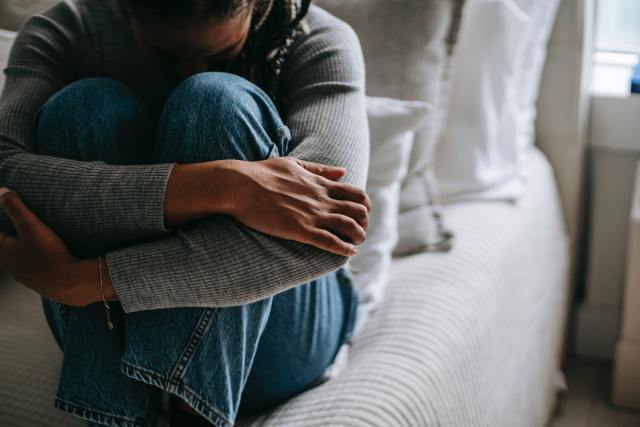With the pandemic finally in the rearview mirror, it’s safe to say we’re all pretty relieved to be back to our normal lives. Thanks to all the important lessons quarantine taught us (like not taking anything for granted), we college students are now older, stronger, and wiser in a lot of ways. But now that we’ve had time to reflect on the absolute whirlwind that was the past few years, we’ve been hit with a major reality check, in the form of a quarter-life crisis.
Take me, for example. When that fateful day happened in March 2020 — you know, the day the world turned upside down — I was in my last year of high school, trying to mentally prepare myself for graduation. I spent my days stressing over who I’d take to prom (which never ended up being an issue after all, since it was canceled). Online university felt like a fever dream. Even though I was living away from home, it never really felt like I was growing up since all classes were online.
And now, it’s been three years. I’m nearing the end of my degree — and I still feel like I’m that seventeen-year-old version of myself.
As with any other phenomenon, Gen Z has taken to TikTok and Twitter to share their struggle in efforts to find someone else who feels the same way. The bad news is, it’s not just me who feels a bit lost. Many others have expressed the shock they feel, and certainly agree that the quarter-life crisis is upon us — mostly because of the pandemic.
So, to get a sense of why we all seem to be experiencing this collective quarter-life crisis, I spoke to experts Kalley Hartman, David Tzall, Dr. Flora Sadri, and Sam Nabil — because we all can’t move on unless we understand the problem.

Young adulthood is a vital time we can’t afford to miss.
The teenage years and early 20s are essential to our development. It’s not only when we learn to express ourselves, explore, and be social, but it’s also the time to discover what it is we want to do with our lives.
All of these requirements aren’t possible with lockdowns, online school, and restricted social interaction — so naturally, it didn’t feel like we were actually growing and maturing when we weren’t able to have the experiences that define young adulthood.
Although it felt like COVID pressed pause on our lives, we’re all now suddenly a few years older, knowing roughly the same amount about ourselves as we did a few years ago. “Young adults in their twenties are especially affected by this quarter-life crisis because their development has been arrested, or put on hold, due to the pandemic,” Dr. Flora Sadri tells Her Campus. “Without the usual socialization and exploration of the world that young people typically experience as they transition into adulthood, many feel unprepared for the real world and have difficulty navigating it.”
Our plans and lives have dramatically shifted in ways we couldn’t prepare for.
As much as we feel like the same person we were a few years ago, we’ve all undergone so much change without even realizing it. So, when we’re back to our normal lives, it’s hard to pick up where we left off.
Virtually every part of our lives changed, which affects how we see ourselves and the world. “Young people’s lives got turned upside down by the pandemic,” says clinical psychologist David Tzall. “Normal parts of their lives such as school, family, and friendships were disrupted. They were isolated for longer periods of time and did not have the same relational outlets they had previously. There is also the prospect that the pandemic further hurt their economic and professional lives. This amount of change can cause an existential crisis leading them to reevaluate their attitudes, direction, and place in life.”
This added pressure shouldn’t be taken lightly. “All of this [change] can be overwhelming, especially when you feel like you haven’t even grown up yet,” licensed therapist Kalley Hartman tells Her Campus. “So it’s no wonder many young adults in their twenties feel anxious, scared, and lost.”

All of this leads us to question our identities when we’re back to our normal lives.
Now that restrictions are gone and we’ve experienced all of these new, life-changing obstacles, it’s easy to assume navigating our new freedom would be a breeze. But instead, we’re experiencing these quarter-life crises, because we lost our identities in the two years we were in lockdown.
“Young adults are in a highly sensitive developmental stage, where they have this biological need to seek a stable and coherent sense of themselves, different from the identity imposed by their families,” explains Sam Nabil, licensed professional counselor. “The pandemic, however, made it difficult for them to find this identity because it caused significant loss and disruption in their developmental tasks.”
So, how can we overcome this quarter-life crisis?
Of course, we won’t be in a quarter-life crisis forever — but how can we manage to overcome it quickly? How can we start actually feeling comfortable in our age and stage of life, instead of still feeling like our pre-pandemic age?
There are many concrete steps you can take toward moving past this quarter-life crisis. “Finding ways to manage your stress and anxiety can be helpful, such as journaling, mindfulness, or talking with a therapist,” Hartman advises. She also recommends taking time to express yourself through your passions, whether that be art, music, or even just going for walks. “Ultimately, the key is finding a balance between managing life post-COVID while also taking care of yourself.”
As we gain more distance from that odd stage of our lives, we’ll naturally start feeling better. “The more restrictions get lifted and the more these individuals can return to those activities they were engaging with previously, the more they can feel like their own age,” Tzall says.
So, for all my fellow 20-somethings who find themselves distraught, confused, and struggling to determine their identity, believe me, I’m right there with you. But the more we talk about these issues we’re having, the more we can begin to truly reconnect with ourselves — and realize that we’re not alone.


